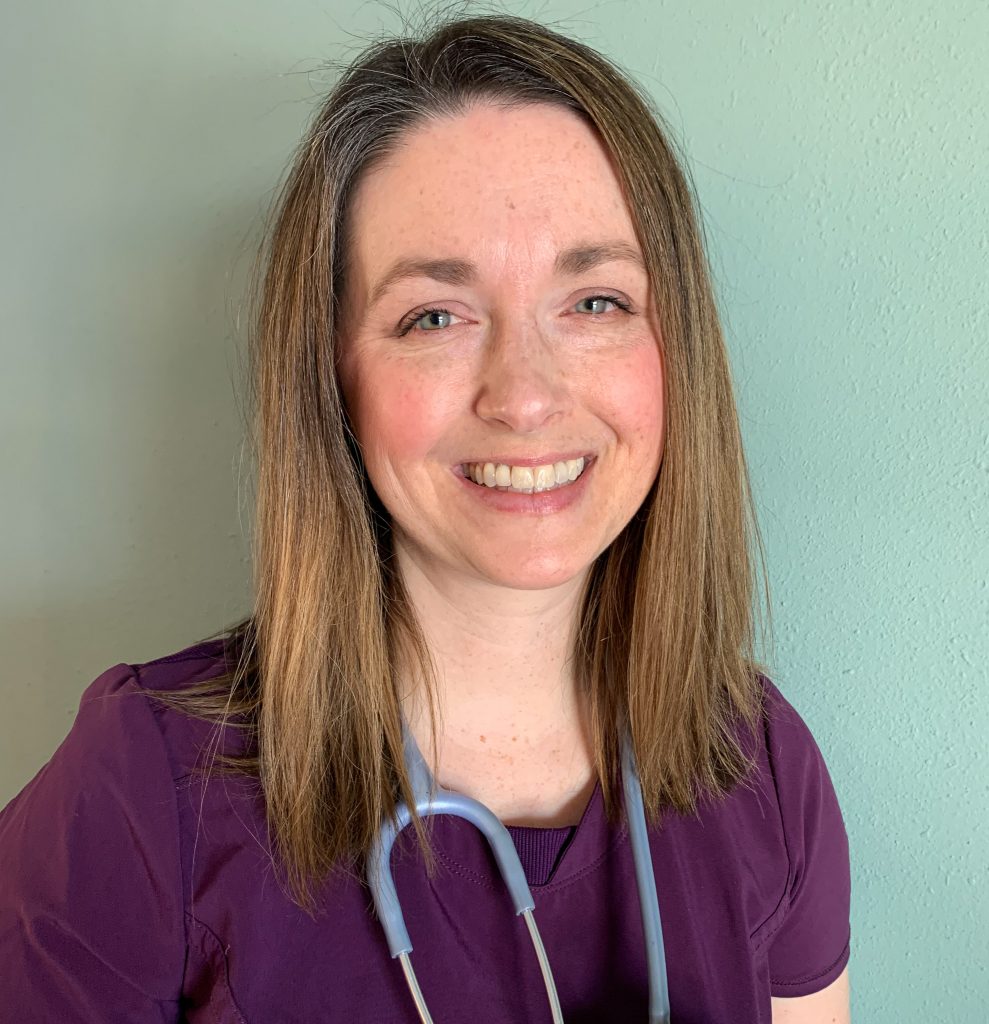The staff elevator door closed and the flood gates opened. Tears openly flowed for my patient and his family. Tears flowed for my work family and all who had learned to love him and his family during their many hospitalizations. Tears flowed for the jokes we all laughed at as he walked the halls pushing his IV pole.
I used to be scared of tears, especially at work. Now I’ve learned that I need to find a space to welcome them, to honor them and to acknowledge the presence of sorrow. I’m learning to live in both spaces- the mountaintop and the valley. I can have a dance party in the halls with a young patient and then walk into the room next door and witness the grief of a new cancer diagnosis.
When people say that nursing and medicine is hard, its not just the intellectual challenges of the job. It is the test of the heart, emotions and will. It is learning to be mentally tough and emotionally honest.
It is learning to be resilient.
It’s important to know that just because you have the desire to be in medicine does not mean that you innately have the skills to take on the job and keep your sanity. Just like we learn to place an IV, we also need to learn skills to stay mentally healthy ourselves in this job.
What is resilience?
Resilience, as defined by the Oxford Dictionary, is ” the capacity to recover quickly from difficulties; toughness” or “the ability of a substance or object to spring back into shape; elasticity”.
What that means in practical terms, is the ability of a person to adapt and overcome difficulty, trauma, and stress. And also includes the ability of someone not to get completely “bent out of shape” by their circumstances.
The American Psychological Association expresses that resilience does not mean that a person is immune to experiencing sadness and adversity. This is part of the human condition. Resilience is a series of thoughts, behaviors and actions that can be learned and developed over time. It is a skill, not an inborn trait.
This is good news for those of us in healthcare and actually all humans. Why? Because that means we have the ability to IMPROVE how we respond to stress and become better versions of ourselves in the process.
Ways to Build Resilience
- Making time to FEEL and honor our emotions. Sadness, anger, frustration, anxiety- all are valid. If you don’t take time to honor those emotions in a safe way, your body will get them out. But usually in ways that surprise you. Like a huge ugly cry at a TV jewelry commercial or a fight with your spouse over something that really isn’t that important. For me, sometimes that means crying the elevator, or taking 15 minutes off the floor to walk outside and acknowledge my emotions.
- Learn and seek out self-care rituals that work for you. Journaling has been shown to be especially helpful. Gratitude journaling can be a simple way to start a daily habit of reflection. Write out 3 good things that happened at the end of each day. Other self-care rituals can include nurturing your creative side through art, painting, sewing, craft, dance or poetry. Find time to read a book. Schedule a massage.
- Make connections and facilitate community. Having a network of people who support you and will listen to you makes a huge difference. Invest in making your work environment and relationships with co-workers as best as it can be. I can’t tell you how many days I was able to get through just because of the incredible team I work with.
- Take action where you can. Often when we feel overwhelmed, we would prefer to detach completely from problems and wish they would just go away. Taking decisive actions, is empowering and builds resilience. For example, create a memorial wall or art piece in your break room to honor patients who have passed.
- Take care of your physical health and nutrition. The better you feel physically, the more capacity you will have to recover from stress and sadness.
Resilience is the solution to burn-out
We love our jobs and our patients. It is unrealistic to think that we can continue to do this job without INTENTIONAL work on resilience skills. Often the term “self-care” can conjure images of eating bonbons, massages, trips to Fiji and shirking all responsibility. That’s why I don’t believe the solution in healthcare we are seeking is more self care. It is resilience. Resilience includes self-care such as relaxation, rest, nutrition and stress reduction. It also includes communication skills, conflict resolution, community building, learned habit change and so much more.
I invite you in this New Year, to make a commitment to strengthening your resilience muscles. My goal is to continue to provide insight, inspiration and helpful tools for you in this journey.
Sometimes we have to cry in the elevator. But we also can learn to wipe the tears, put on a genuine smile and continue to serve those who need us most.
In health and joy,
Karen
Interested in developing your own personalized resilience plan for the New Year? I would love to help with one-on-one coaching! I offer a Clarity call, Click Here





